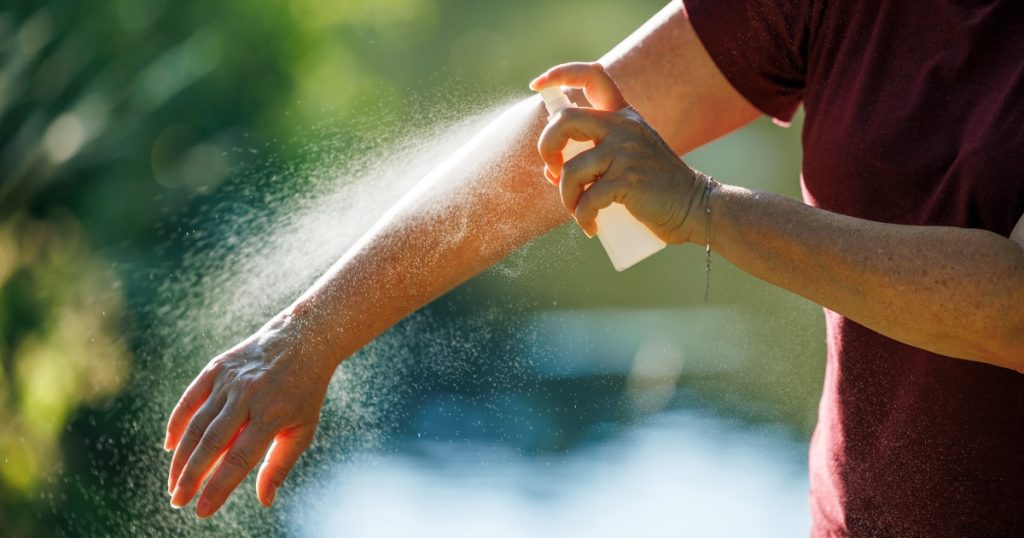Mosquitos are not just a nuisance with their itchy bites, they can also spread potentially life-threatening infectious diseases such as eastern equine encephalitis, West Nile virus, and dengue fever. This year, at least five states have reported cases of eastern equine encephalitis, with Massachusetts trying to contain its first outbreak since 2020. West Nile virus, the leading cause of mosquito-borne disease in the U.S., has also been spreading, with at least 33 states reporting cases totaling 289. Furthermore, the CDC has issued a health alert warning of rising cases of dengue fever, a tropical disease that half of the world’s population is at risk of contracting.
When it comes to preventing mosquito bites, it is crucial to use only EPA-registered insect repellent as recommended by the CDC and Environmental Protection Agency. Homemade mosquito repellents, made from ingredients such as apple cider vinegar, witch hazel, and essential oils, are not recommended as their effectiveness is unknown and they may not provide adequate protection. Instead, experts advise using products that contain active ingredients like DEET, picaridin, oil of lemon eucalyptus, IR 3535, or para-menthane-diol. These ingredients have been proven effective at repelling mosquitoes and protecting against mosquito-borne illnesses such as eastern equine encephalitis and West Nile virus.
In addition to using insect repellent, experts recommend treating clothing with permethrin to help ward off mosquitoes, especially when traveling. Permethrin-treated clothing can keep mosquitoes away even through several wash cycles. However, it should never be used on the skin. DEET, picaridin, and permethrin are all effective at repelling mosquitoes, with each having its own advantages and disadvantages. Plant-derived products like oil of lemon eucalyptus can also be effective, but should be avoided for children under three years old. It is important to consider factors such as how long the protection lasts, how often to reapply, and whether the product provides simultaneous tick protection when choosing a mosquito repellent.
It is also important to take measures to control mosquitoes both inside and outside the home. This includes emptying any collections of water around the home, using screens for doors and windows, using foggers and outdoor insect sprays, and minimizing time outside at dusk when mosquito activity is highest. Additionally, it is recommended to use air conditioning when possible and to physically avoid mosquitoes by sleeping inside with windows closed, staying in screened-in areas, and wearing long, loose-fitting clothing when outside. By following these precautions and using effective insect repellents, individuals can protect themselves from mosquito bites and the diseases they can transmit.
In conclusion, the ongoing threat of mosquito-borne illnesses such as eastern equine encephalitis, West Nile virus, and dengue fever highlights the importance of taking precautions to prevent mosquito bites. Using EPA-registered insect repellents with active ingredients like DEET, picaridin, and oil of lemon eucalyptus can help protect against mosquito-borne diseases. In addition to using insect repellent, controlling mosquitoes around the home and taking measures to physically avoid mosquitoes can further reduce the risk of bites. By being proactive and informed about mosquito prevention strategies, individuals can enjoy the outdoors safely and protect themselves from potentially life-threatening diseases spread by mosquitoes.


